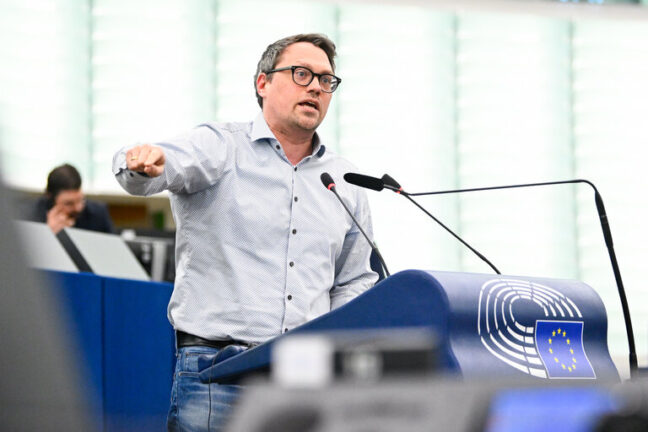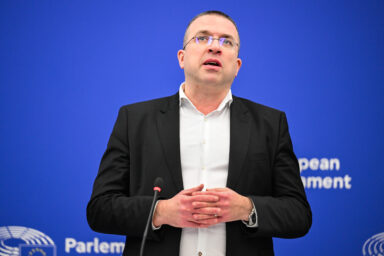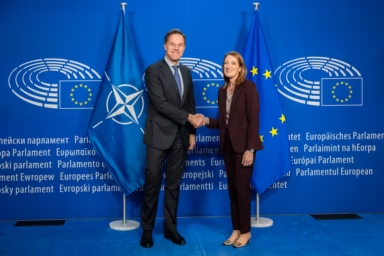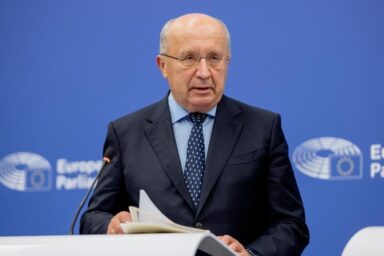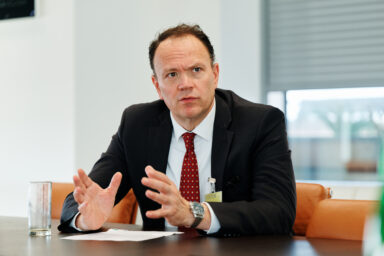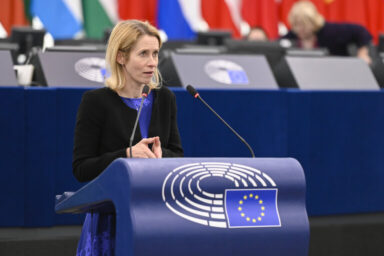Two days after the European Parliament signalled its readiness to enter trilogue negotiations on the EU’s sweeping pharmaceutical reform, the Council of the EU finally reached a common position, clearing the way for interinstitutional talks on one of the most consequential health files of the decade.
The Council’s agreement, reached Wednesday after weeks of political deadlock, marks the start of trilogue negotiations with the European Parliament and the European Commission. Yet in a telling shift of momentum, MEPs were already ready to go on Tuesday.
“We are looking forward to engaging with the Council in the coming months to deliver on this much needed reform. At the core of our priorities will be accessibility, affordability and the fight against AMR,” MEP Tiemo Wölken (S&D/GE) told EU Perspectives.
While MEPs have not yet dissected the Council’s full compromise text, spanning more than 700 pages, Mr Wölken’s priorities heading into trilogues are clear: equitable access to medicines, support for rare disease innovation, and a revised approach to antimicrobial resistance, or AMR.
You might be interested
A head start from Parliament
On 3 June, the European Parliament’s Public Health Committee (SANT) voted to enter the trilogues, relying on the Parliament’s first-reading position adopted under the previous legislature. MEPs Dolors Montserrat (EPP/ES) and Mr Wölken will lead the negotiations on the directive and regulation, respectively.
According to Mr Wölken’s team, the S&D group will be defending provisions that the Council has already dropped, including incentives linked to the concept of high unmet medical need.
“We do believe that, looking at the fact that 96 per cent of rare diseases do not have any medication, this would be something that the high unmet medical need would have covered,” the team’s spokesperson told EU Perspectives. “If they deleted it because they didn’t want separate categories of rare diseases, I think we will be fighting a lot over that.”
Removing patients out of the process and taking away their voice is definitely nothing that we as S&D or Parliament should stand for.
Voucher scaled-down, patient voice sidelined
Another area of contention is the controversial transferable exclusivity voucher (TEV) designed to stimulate the development of new antibiotics. “The voucher was something that we as S&D did not like at all,” the spokesperson explained to EU Perspectives.
“We did modify it in the Parliament, adding mechanisms like a subscription model and milestone prices. The Council, as far as I know, didn’t look at those. They kept the voucher but just reduced the number from 10 to 5. We don’t think that’s enough.”
Moreover, concerns are already surfacing that the Council text weakens patient involvement. “I did have patient organisations reaching out and saying that the Council has removed the involvement of patient organisations in the CHMP/PRAC decision-making process. This is an absolute no-go,” the spokesperson said. “Removing them out of the process and taking away their voice is definitely nothing that we as S&D or Parliament should stand for.”
Council compromise clears way, barely
The Council’s green light followed a failed attempt by the Polish Presidency on 21 May to secure a mandate amid disagreements over regulatory data protection (RDP) and access incentives. That earlier proposal included a baseline of seven years of RDP with potential extensions, a position rejected by a blocking minority including France, Germany, Italy, and Denmark.
In the final compromise endorsed by COREPER on 4 June, the Polish Presidency reverted to the current baseline of eight years of RDP. A one-year extension remains available via the antimicrobial voucher, and the most contentious access incentive, linking extra data protection to EU-wide market launch, was dropped.
While the new text adds modest language on the obligation to supply medicines, penalties for companies failing to meet access expectations were scrapped. The Commission may now only require companies to “negotiate in good faith” with national authorities and will report on implementation four years after entry into force.
First trilogue: handshake before hard talks
The first trilogue is scheduled for 17 June, just before the EPSCO Council meeting in Luxembourg. But stakeholders warn not to expect much substance just yet.
“That’s more like a handshake,” Mr Wölken’s office said. “The process is only starting. As soon as we have that, the technical level can then start having meetings and discussing every single article.”
With a new Danish Presidency set to take over the Council on 1 July, real negotiations will likely intensify over the summer.
With discussions on the Critical Medicines Act also progressing in parallel, both files are seen as central to the EU’s pharmaceutical strategy. European Commissioner Oliver Várhelyi stressed the urgency of advancing both dossiers: “We should work intensively on both files so that agreement can be reached this year. We still have a lot to do to create a better environment for the European health systems and industry.”
For Parliament’s negotiators, the focus remains clear: “We need to make the pharmaceutical legislation fit for the future and work on increasing patient access to needed medication across the Union,” Mr Wölken’s team stressed. “And that’s a line we won’t compromise on.”
How the RDP proposal changed
| Commission Proposal (April 2023) – Standard RDP set at 6 years, extendable to 8 years if companies launch medicines in all EU countries. – Aimed to reward broad and timely access. |
| Polish Presidency Proposal (21 May 2025) – Suggested a 7-year baseline with potential 1-year extension. – Included penalties for failing to meet market access obligations. – Rejected by France, Germany, Italy, Denmark and others. |
| Final Council Compromise (4 June 2025) – Reverted to current baseline: 8 years RDP. – No access-based modulation. – One-year extension possible only via antimicrobial voucher (TEV). |
